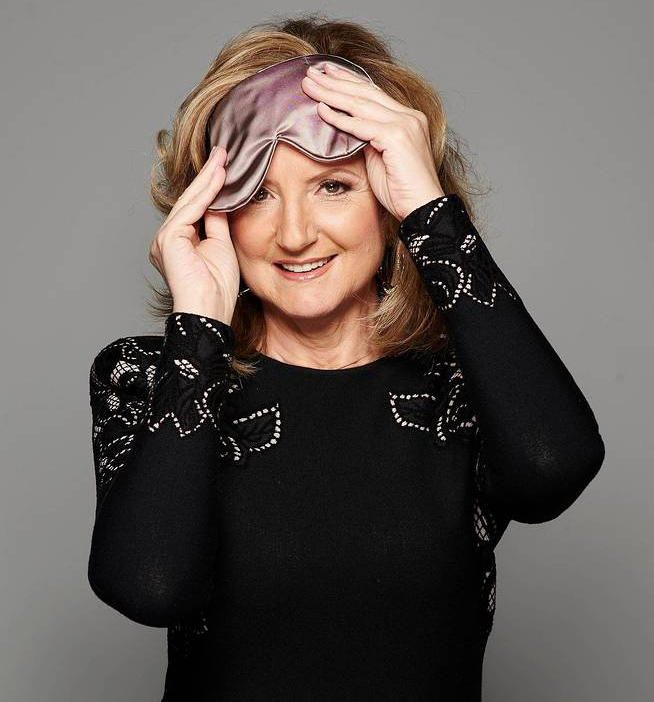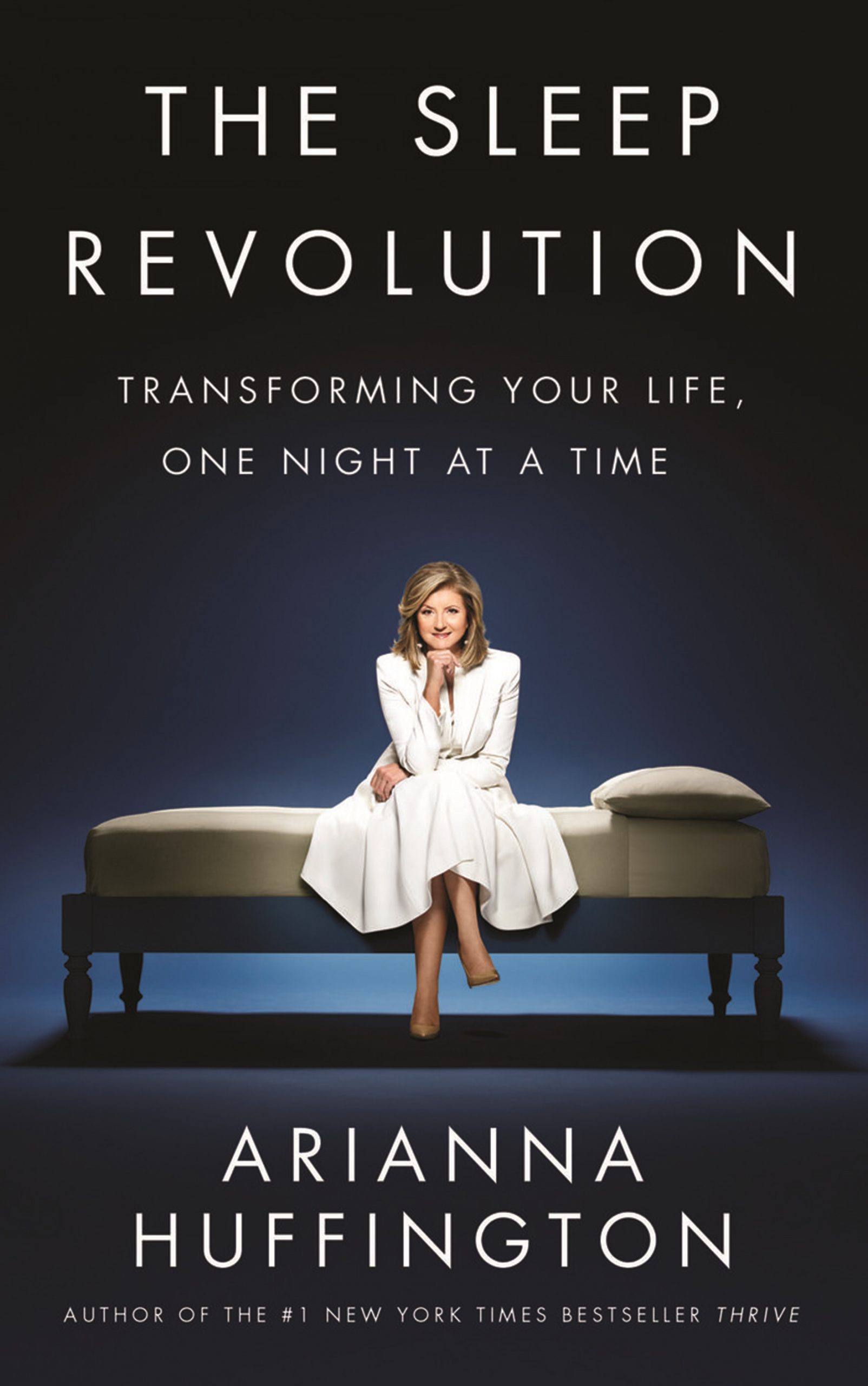Arianna Huffington shares her secret to success
Co-founder and editor-in-chief of The Huffington Post, Arianna Huffington, reveals the secrets to a successful working life. Clue: the most important first step is to start with your own wellbeing…

I’m often asked what advice I would give to my younger self if I had the chance. My answer? I wish I could go back and tell myself: “Arianna, your performance will actually improve if you can commit to not only working hard, but also unplugging, recharging and renewing yourself.” That would have saved me a lot of unnecessary stress, burnout and exhaustion.
Like many people, I believed that whatever success I had was because of the burnout. But as I’ve realised since, it was in spite of it. For many years, I subscribed to a very flawed definition of success, buying into our collective delusion that burnout is the necessary price we must pay for success. Then, in 2007, I had a painful wake-up call: I fainted from sleep-deprivation and exhaustion, hit my head on my desk, and broke my cheekbone.
Looking back on my life, I had other times when I should have woken up, but didn’t. This time I really did and made many changes in the way I live my life, including adopting daily practices to keep me on track— and out of doctors’ waiting rooms. The result is a more fulfilling life, one that gives me breathing spaces and a deeper perspective.
In 2014, I wrote Thrive (WH Allen, £9.99) to explore the ways in which our lives can be much more fulfilling when we broaden our definition of success moving beyond the modern metrics of money, status and power to include wellbeing, wisdom, wonder and the power of giving. Sleep was just one element of Thrive, but as I went around talking about the book, it was the topic of sleep everybody wanted to discuss. Everywhere I went, I’d hear versions of what one young woman said to me after a reading in San Francisco, “I don’t remember the last time I wasn’t tired.” So I realised the role of sleep in our lives needed a fuller exploration.
Right now, our relationship with sleep is in crisis. The evidence is all around us – including the collective delusion that overwork and burnout are the price we must pay in order to succeed. The method (or cheat code) we use isn’t a mystery: feeling that there aren’t enough hours in the day, we look for something to cut. And sleep is an easy target. In fact, up against this unforgiving definition of success, sleep doesn’t stand a chance. So I made the decision to make sleep a priority in my life, and also to become a sleep evangelist. And since sleep is the gateway through which a life of wellbeing must travel, I’m delighted to share some of the tips, tools and techniques that have made such a difference in my life.
1. Have a specific time at night when you regularly turn off your devices and gently escort them out of your bedroom. Disconnecting from the digital world will help you reconnect to your wisdom, intuition, and creativity. And when you wake up in the morning, don’t start your day by looking at your smartphone. Take one minute – trust me, you do have one minute – to breathe deeply, or be grateful, or set your intention for the day.
2. We sleep better when we make time for regular physical activity in our lives. A 2014 study from the University of Georgia, found a strong connection between sleep problems and cardiorespiratory fitness. “Staying active won’t cure sleep complaints,” said lead author Rodney Dishman, “but it will reduce the odds of them.” I find that on the days when I’ve biked or hiked or walked or done yoga, it’s much easier to unwind and fall asleep.
3. One thing keeping us up at night is worrying about our never-completed to-do lists. We lie in bed thinking of all that was not done today and all that needs to be done tomorrow, and it seems impossible to shut our minds off. I have a quote by Ralph Waldo Emerson by my bed that helps me silence my mind: “Finish every day, and be done with it… You have done what you could – some blunders and absurdities no doubt crept in, forget them as fast as you can, tomorrow is a new day. You shall begin it well and serenely, and with too high a spirit to be encumbered with your old nonsense.”
4. Stillness – our ability to pause and connect with our deeper selves – is a skill that can be learned and cultivated. And this is all the more important when the world is coming at us at an increasingly frantic pace. So for me, becoming comfortable with stillness – without a constant stream of external stimulation – was a prerequisite to becoming comfortable with sleep. The ubiquity of technology and its addictive nature have made it much harder for us to disconnect and go to sleep, but the news about technology and sleep is far from all bad.
As technology has spread into nearly every corner of our lives, it’s also begun to turn inward, expanding its reach beyond helping us connect with the world to helping us connect with ourselves. That’s the new frontier of tech: not outward, but inward. We’re never going to banish technology from our lives. Nor would we want to. But what we can do is get the best out of technology – and there is now plenty of it out there that promises to improve our sleep.
Technology has given us an unprecedented ability to learn more about ourselves, and there is a widespread hunger to track how we sleep. According to a 2015 study by Sleep Number, 43 per cent of respondents said they had tracked their workouts and 41 per cent had tracked their diet. Only 16 per cent had tracked their sleep, but look for that number to rise, since 58 per cent wished they knew more about how to track and get better sleep.
The science is clear – sleep gives us more control over our health and happiness. We only need to tap into its power that is available to us every night. We may be what we eat, but also, to be sure, we are how we sleep.
‘The Sleep Revolution: Transforming Your Life, One Night at a Time’ by Arianna Huffington (WH Allen, £16.99) is out now









